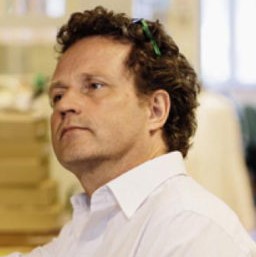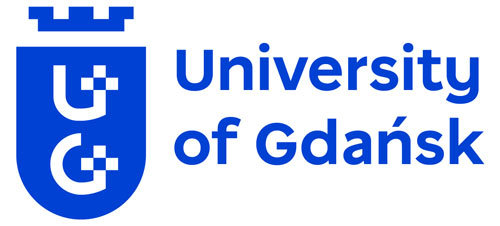The International Centre for Cancer Vaccine Science (ICCVS) has been established in 2017 as a joint unit of the University of Gdańsk (UG) and the University of Edinburgh (UoE) within a project carried out within the International Research Agendas Programme of the Foundation for Polish Science and the European Union under the European Regional Development Fund.
Authors of the project: Ted Hupp and Robin Fahraeus
Financial support from European Union funds: 41 109 030,00 PLN
Project location: The University of Gdańsk (Gdańsk, Poland)
Foreign strategic partner: The University of Edinburgh (Edinburgh, UK)
Field of research: Molecular genetics, immunology, clinical biochemistry
Project aim: Comprehensive research into immunotherapies that could lead to the creation of personalized therapeutic cancer vaccines, followed by their commercialization and implementation into clinical practice.
Concept & Objectives: Ageing related diseases including neuro-degeneration and cancer will form the major socioeconomic chronic health burdens of Western societies this coming century. The Global Challenge for Cancer treatment will be to exploit emerging advances in genetics, computational science, and Biologics to develop personalized therapeutics. The human immune system has evolved to eradicate a huge diversity of pathogens and malignant cells. Evasion of this surveillance system is a key hallmark of oncogenesis. The majority of anti-cancer strategies do not, however, address the ability of cancers to cloak themselves from immune-mediated eradication. Regulatory immune cells can also be subverted to promote cancer cell survival and metastasis. Developing strategies that reawaken the immune system and harness the plasticity of antigen recognition are emerging as potential game-changers in cancer therapeutics.
The International Centre for Cancer Vaccine Science (ICCVS) at the University of Gdansk will form a centre of excellence in inter-disciplinary research that aims to improve human health by establishing discovery science programmes focussed on the immune-cancer synapse. Our scientific objectives build on existing collaborative networks and aim to (I) define fundamental mechanisms underlying neoantigen production in cancer cells; (II) define oncogenic pathways that shape the cancer-immune synapse; (III) develop novel computational and proteogenomics strategies to fully define the mutated landscape of cancers; and (IV) develop novel comparative cancer models that drive innovation in monoclonal antibody development and the production of multi-valent cancer vaccines. The implications of such discovery science will be improved socioeconomic benefits resulting from innovative cancer vaccines and immunotherapy to improve cancer treatment.
Scientific programme & Innovations to address the challenges
- Cancer is a genetic disease creating a richly mutated tumour-specific antigen landscape.
- Tumour specific antigen vaccines can stimulate immune cell-mediated tumour rejection.
- The Cancer-Immune synapse forms a compelling therapeutic target.
- Inter-disciplinary research is required to develop cancer immunotherapies for use in the clinic.
- Our objectives are to develop a unique integrated Research Centre that allows rapid cross training, fosters inter-disciplinarity, and whose aims are to develop outstanding science that produces rules driving the development of personalized cancer vaccines for use in medicine.
Immunotherapies that exploit and target both tumour and immune cell signaling is emerging internationally as a compelling approach for personalized cancer therapies. We need to train and equip the next-generation of cancer researchers to apply knowledge that advances our understanding of the cancer-immune landscape in Poland and internationally. Our Centre can create an ideal opportunity for training future leaders and to develop innovative teams to establish translational science and medicine. A dedicated inter-disciplinary and highly collaborative research centre can begin to establish these aims. Collaborative, inter-disciplinary programme teams are being developed. Discovery Science will form the core philosophy of the programme with key aims to translate this knowledge into the Bioeconomy. The themes are focused on (i) neoantigen science; (ii) receptors at cancer-immune synapse; (iii) the cancer secretory system; (iv) proteogenomics and computational science; (v) novel preclinical models to develop rules for vaccine Biologics; and (vi) translational models in human cancers of high unmet clinical need.
Founder and first director 2017-2021
 Professor Ted Hupp – founder, first director of ICCVS and research group leader at ICCVS (2017-2021). Currently, professor and principal investigator at ICCVS, he leads the recently awarded research project “The impact of UPF1 ATP mimetics on the mutant immunopeptidome“ (funded by the National Centre for Science, Poland), as well as mentors other research fellows, and supervisors PhD students. He is also presently working in the UK as the Chair of Experimental Cancer Research at the University of Edinburgh.
Professor Ted Hupp – founder, first director of ICCVS and research group leader at ICCVS (2017-2021). Currently, professor and principal investigator at ICCVS, he leads the recently awarded research project “The impact of UPF1 ATP mimetics on the mutant immunopeptidome“ (funded by the National Centre for Science, Poland), as well as mentors other research fellows, and supervisors PhD students. He is also presently working in the UK as the Chair of Experimental Cancer Research at the University of Edinburgh.
Prof Hupp graduated in Chemistry at the State University in Ohio, and did his PhD in Biochemistry at the Michigan State University. His research is focused on proteomics and proteogenomics, cancer induced immune suppression and the role of various signaling pathways in oncogenesis. Main applicant/co-investigator in 25 research grants funded by, i.a., Medical Research Council (MRC-UK), Biotechnology and Biological Science Research Council (BBSR-UK), Cancer Research UK, and AICR (Association for International Cancer Research). He combines his research qualifications with business collaborations.
Co-founder and first co-director 2017-2021
 Professor Robin Fahraeus – co-founder, first co-director, and research group leader at ICCVS (2017-2021). Currently, as professor and senior scientist, he mentors other research fellows and supervises PhD students at ICCVS. He is also presently working as head of a research group at the French National Institute of Health and Medical Research (INSERM) in Paris and is scientific advisor at the French National Cancer institute (INCa). He received his PhD in Cancer Biology at the Karolinska Institute in Sweden. He has pursued his research career, i.a., at the Dundee University in the UK and at the Masaryk Memorial Cancer Institute in Brno in Czech Republic. Awarded with numerous prestigious scholarships and scientific awards.
Professor Robin Fahraeus – co-founder, first co-director, and research group leader at ICCVS (2017-2021). Currently, as professor and senior scientist, he mentors other research fellows and supervises PhD students at ICCVS. He is also presently working as head of a research group at the French National Institute of Health and Medical Research (INSERM) in Paris and is scientific advisor at the French National Cancer institute (INCa). He received his PhD in Cancer Biology at the Karolinska Institute in Sweden. He has pursued his research career, i.a., at the Dundee University in the UK and at the Masaryk Memorial Cancer Institute in Brno in Czech Republic. Awarded with numerous prestigious scholarships and scientific awards.


